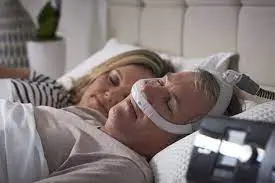- Home
- Medical news & Guidelines
- Anesthesiology
- Cardiology and CTVS
- Critical Care
- Dentistry
- Dermatology
- Diabetes and Endocrinology
- ENT
- Gastroenterology
- Medicine
- Nephrology
- Neurology
- Obstretics-Gynaecology
- Oncology
- Ophthalmology
- Orthopaedics
- Pediatrics-Neonatology
- Psychiatry
- Pulmonology
- Radiology
- Surgery
- Urology
- Laboratory Medicine
- Diet
- Nursing
- Paramedical
- Physiotherapy
- Health news
- Fact Check
- Bone Health Fact Check
- Brain Health Fact Check
- Cancer Related Fact Check
- Child Care Fact Check
- Dental and oral health fact check
- Diabetes and metabolic health fact check
- Diet and Nutrition Fact Check
- Eye and ENT Care Fact Check
- Fitness fact check
- Gut health fact check
- Heart health fact check
- Kidney health fact check
- Medical education fact check
- Men's health fact check
- Respiratory fact check
- Skin and hair care fact check
- Vaccine and Immunization fact check
- Women's health fact check
- AYUSH
- State News
- Andaman and Nicobar Islands
- Andhra Pradesh
- Arunachal Pradesh
- Assam
- Bihar
- Chandigarh
- Chattisgarh
- Dadra and Nagar Haveli
- Daman and Diu
- Delhi
- Goa
- Gujarat
- Haryana
- Himachal Pradesh
- Jammu & Kashmir
- Jharkhand
- Karnataka
- Kerala
- Ladakh
- Lakshadweep
- Madhya Pradesh
- Maharashtra
- Manipur
- Meghalaya
- Mizoram
- Nagaland
- Odisha
- Puducherry
- Punjab
- Rajasthan
- Sikkim
- Tamil Nadu
- Telangana
- Tripura
- Uttar Pradesh
- Uttrakhand
- West Bengal
- Medical Education
- Industry
CPAP may reduce fall risk among elderly patients of sleep apnea

Studies in past have revealed that Obstructive sleep apnoea (OSA) was associated with impaired gait, balance and risk of fall in older people
Researchers have found in a new study that CPAP may reduce fall risk among elderly patients of sleep apnea possibly related to better CPAP adherence and reduced daytime sleepiness.
Fall risk markers were significantly reduced following ∼6 months of CPAP therapy in OSA participants over 65 years of age. Also there was improvement in falls risk score which was correlated with CPAP compliance and degree of reduction in excessive daytime sleepiness.
The study has been published in Sleep Medicine.
Falls in older people can lead to severe injury and significant societal health and financial burden. Obstructive sleep apnoea (OSA) is associated with impaired gait/balance and may increase fall risk, yet few studies examined whether treating OSA reduces fall risk. This study examined the effect of continuous positive airway pressure (CPAP) on fall risk markers in people over 65yrs diagnosed with OSA. It was a single-arm intervention study conducted at University and tertiary care CPAP clinic. The study included individuals over 65 years diagnosed with OSA and recommended CPAP.
28 participants had a physiological profile assessment (PPA) at baseline and following 3–6 months of CPAP. The PPA examines visual contrast sensitivity, lower limb proprioception, knee extension strength, reaction time and postural sway to generate a fall risk score (FRS). t-tests were used to determine the difference between pre-and post-treatment FRS. Regression was used to examine the associations between CPAP use and daytime sleepiness with FRS.
Results:
- CPAP significantly reduced the FRS contrast sensitivity and lower limb proprioception
- Increased CPAP use was associated with improvement in FRS in unadjusted analysis
- Reduction in Epworth sleepiness score was associated with a decrease in FRS in unadjusted and adjusted analysis
Researchers concluded that CPAP may reduce fall risk in people over 65yrs, possibly related to better CPAP adherence and reduced daytime sleepiness. Future controlled trials and mechanistic studies must elucidate how CPAP may reduce fall risk.
Reference:
David Stevens, Chris Barr, Katherine Bassett, Aaron Oh, Stephen R. Lord, Maria Crotty, Kelsey Bickley, Sutapa Mukherjee, Andrew Vakulin. Reduction in fall risk markers following CPAP treatment of obstructive sleep apnoea in people over 65 years, Sleep Medicine, ISSN 1389-9457, https://doi.org/10.1016/j.sleep.2022.09.019
Dr. Shravani Dali has completed her BDS from Pravara institute of medical sciences, loni. Following which she extensively worked in the healthcare sector for 2+ years. She has been actively involved in writing blogs in field of health and wellness. Currently she is pursuing her Masters of public health-health administration from Tata institute of social sciences. She can be contacted at editorial@medicaldialogues.in.
Dr Kamal Kant Kohli-MBBS, DTCD- a chest specialist with more than 30 years of practice and a flair for writing clinical articles, Dr Kamal Kant Kohli joined Medical Dialogues as a Chief Editor of Medical News. Besides writing articles, as an editor, he proofreads and verifies all the medical content published on Medical Dialogues including those coming from journals, studies,medical conferences,guidelines etc. Email: drkohli@medicaldialogues.in. Contact no. 011-43720751


